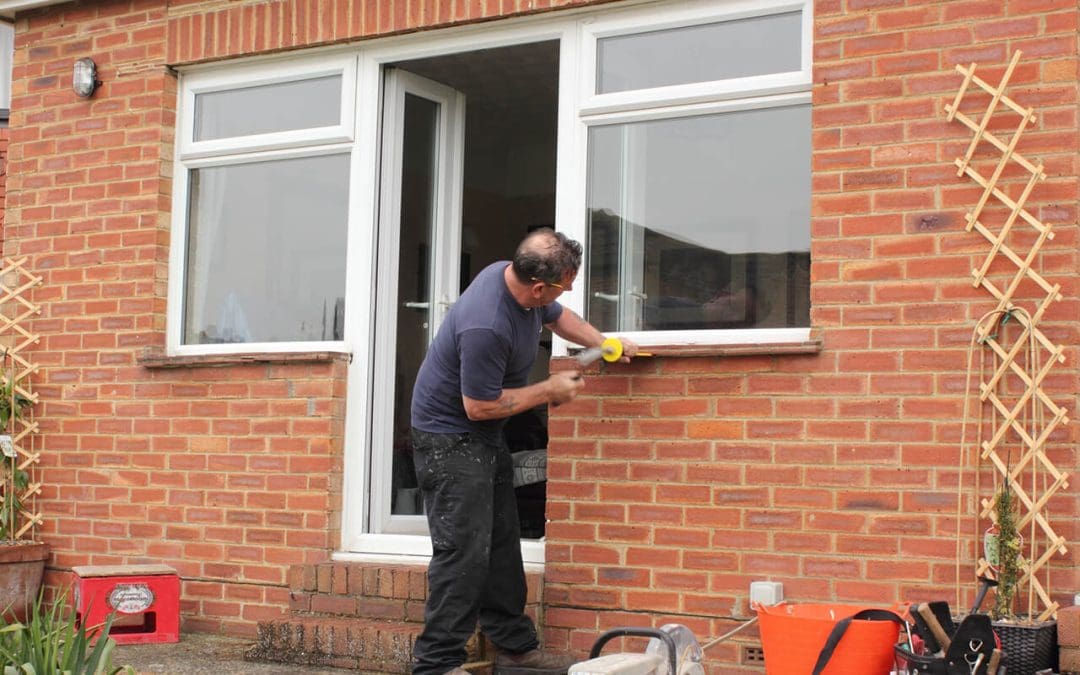Windows play a crucial role in your home’s comfort, energy efficiency, and overall appearance. While they often go unnoticed when functioning properly, outdated or damaged windows could quickly become a source of frustration and expense. Knowing when to replace windows helps homeowners save money, improve comfort, and increase property value.
Why Homeowners Choose to Replace Windows
There are several reasons homeowners decide to replace windows, ranging from functionality to aesthetics. Energy efficiency is one of the most common. Older windows often allow drafts, making it harder to regulate indoor temperature and forcing heating or cooling systems to work overtime. Replacing them with modern, energy-efficient windows could dramatically reduce utility bills. Another reason is appearance; new windows instantly refresh the exterior and interior look of a home, boosting curb appeal. Safety is another factor. Windows that don’t open or close properly may become hazards in emergency situations, making it clear that replacement is overdue.
Signs Your Windows Are Ready for an Upgrade
While it’s tempting to put off upgrades, certain signs signal the need to replace windows. Persistent drafts, condensation between panes, or visible damage like rotting frames are strong indicators. If windows become difficult to open or close, they may be warped or failing. Another sign is increased energy bills, which often means your home loses conditioned air through inefficient glass or seals. By paying attention to these clues, homeowners are able to act before small issues lead to major expenses.
The Benefits of Updating Old Windows
Choosing to replace windows provides more than just a cosmetic improvement. Modern window technology offers significant energy savings, reducing monthly costs while creating a more consistent indoor climate. New windows also reduce outside noise, a valuable benefit for homes near busy streets or urban areas. They enhance natural light without sacrificing insulation, and many models include UV protection that preserves furniture and flooring from sun damage. New windows will be a beneficial selling point for homeowners planning to sell, adding measurable value to the property.
Improving Energy Efficiency
One of the most important reasons to replace windows is energy efficiency. Heating and cooling account for a large portion of household expenses, and inefficient windows contribute heavily to wasted energy. If your windows are single-pane or more than 15–20 years old, it’s likely time to upgrade. Energy-efficient windows, such as double or triple-pane options with low-E coatings, provide excellent insulation. By knowing when to replace windows, you will maximize comfort while keeping energy bills under control.
Choosing the Right Season for Window Installation
Many homeowners wonder about the best season to replace windows. While installation could technically be done year-round, spring and fall are often ideal. These seasons provide moderate weather, making the installation smoother and less disruptive. However, if your windows are severely damaged or are causing high energy costs, the best time to replace windows is always as soon as possible. Waiting too long could lead to further damage, including water intrusion, mold growth, or higher utility bills.
How Often Should You Replace Windows?
There isn’t a one-size-fits-all answer to how often you should replace windows, as it depends on factors like window material, climate, and upkeep. Generally, windows last between 15 and 30 years, but wood windows may require replacement sooner if not appropriately maintained. Vinyl and fiberglass windows typically last longer with minimal upkeep. Regular inspection of seals, frames, and glass helps you determine if your windows are approaching the end of their lifespan. Being proactive guarantees you replace windows before they compromise your home’s safety or efficiency.
FAQs
How do I know if I should repair or replace windows?
Minor issues like worn weatherstripping or a single cracked pane may be repairable, but widespread drafts, rotting frames, or broken seals mean it’s time to consider replacing windows.
Is it expensive to replace windows?
The cost varies depending on window size, material, and style. While replacing windows is an investment, the energy savings, comfort, and increased property value often make it worthwhile.
Could I replace windows myself?
Some homeowners attempt DIY replacement, but professional installation guarantees proper sealing, fit, and long-term performance. Improper installation could lead to leaks, drafts, and reduced efficiency.
Do new windows really lower energy bills?
Yes. Energy-efficient windows reduce heat transfer, keeping your home warmer in the winter and cooler in the summer, directly lowering utility costs.
What is the average lifespan of new windows?
Modern windows typically last 20–30 years with proper care, though factors like climate and material choice influence longevity.
Assure Inspections Inc. offers home inspections in the Chicago area. Contact us to request an appointment.

